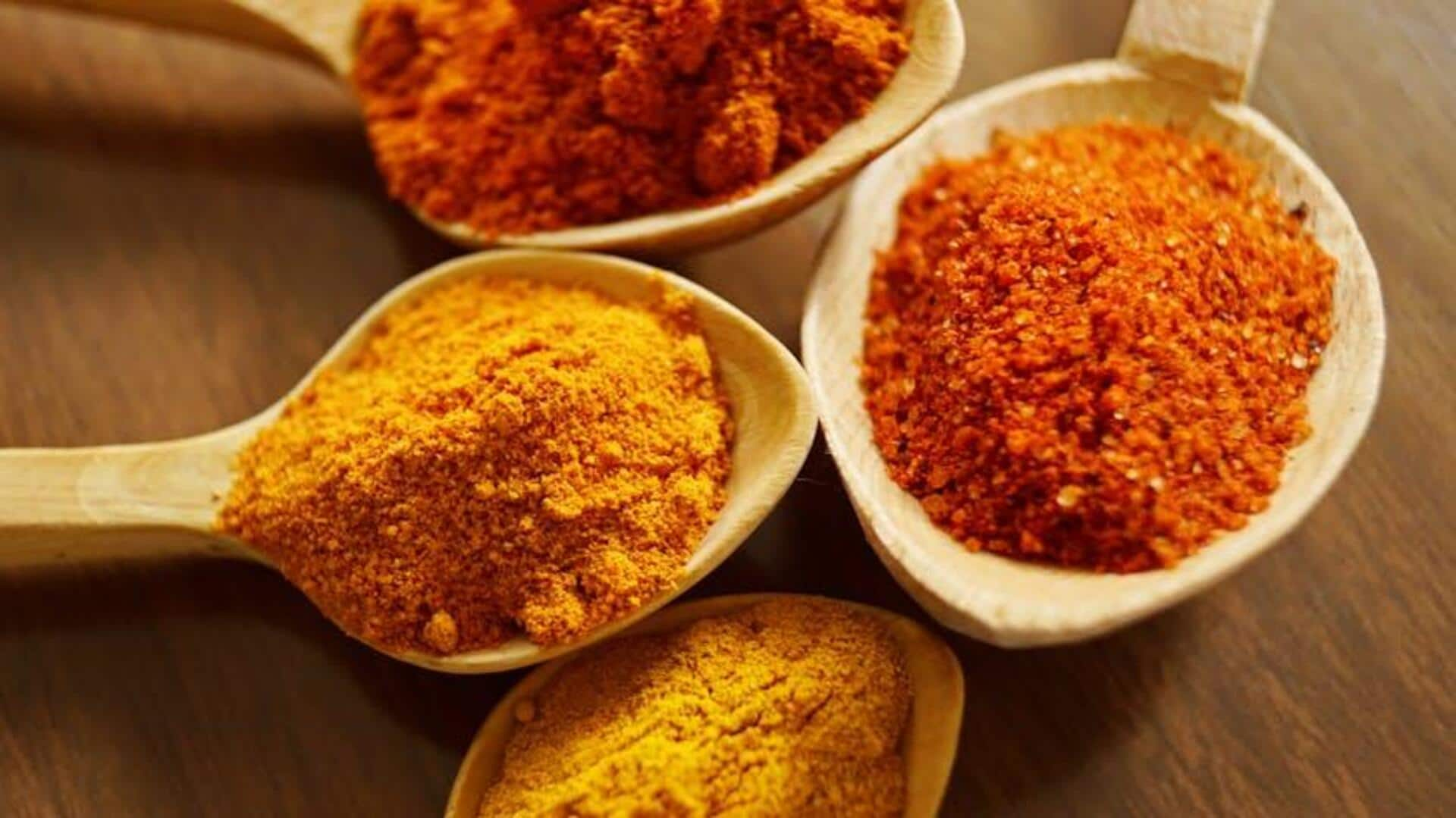
Essential spices in Egyptian vegetarian cuisine
What's the story
Egyptian cuisine is a treasure trove of flavors, mirroring the nation's ancient history and its role as a cradle of civilizations. Vegetarian dishes hold a special place in Egyptian food culture, known for their vibrant flavors and the use of aromatic spices. Getting to know the essential spices used in these dishes can level up your cooking and transport you to the heart of Egypt!
Cumin
Cumin: The quintessential spice
Cumin is essential in Egyptian vegetarian cuisine, adding a warm, earthy flavor to dishes. It's used both as whole seeds and ground powder, and you'll find it in recipes for falafel, lentil soups, and various vegetable stews. Its versatility makes cumin a must-have for any kitchen looking to recreate authentic Egyptian tastes.
Coriander
Coriander: A fragrant addition
Ground coriander seeds provide a refreshing contrast to the robust textures of beans and lentils in Egyptian vegetarian dishes. This lemony citrus note is a welcome addition to any meal. You'll also find coriander in spice blends like dukkah—perfect for dipping bread or adding a sprinkle of flavor to your favorite salad. Coriander is definitely a kitchen essential for anyone looking to master the art of Egyptian vegetarian cuisine.
Garlic
Garlic: The flavor enhancer
Garlic is a key player in Egyptian vegetarian food, adding a serious flavor punch to dishes. It's generously used in dips like baba ghanoush, various sauces, and as a seasoning for vegetables before roasting or frying. The bold use of garlic transforms simple ingredients into richly flavored feasts, capturing the heart of traditional Egyptian meals.
Mint
Mint: For freshness
Fresh mint leaves are a staple in Egyptian cuisine, often used to add a refreshing burst of flavor to salads, dips, and drinks. Its cooling taste complements the warmth of spiced dishes, adding a touch of brightness that enhances the overall culinary experience. By adding mint to your meals, you can infuse your dishes with a taste of the Mediterranean.
Sumac
Sumac: A tangy twist
Sumac imparts a tangy, lemony flavor that's truly one-of-a-kind; it's commonly sprinkled over salads or used as a garnish on dips like hummus. This spice will bring a whole new layer of delicious sourness to your meals without drowning out the other tastes. Plus, the rich red color of sumac makes any dish look like a piece of art.